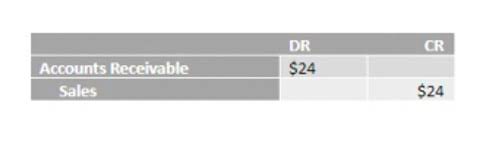
As conduits of financial information, these adept professionals serve as a bridge between raw data and informed decisions. Bookkeepers are responsible for accurately calculating employee wages, taxes, and deductions. They ensure employees are compensated on time and according to applicable labor legal guidelines. Additionally, full-charge bookkeepers manage timesheets, ensuring that working hours are accurately recorded, and payroll is appropriately processed.
- They are well-versed in basic accounting principles, and they apply these in their work.
- This comprehensive approach encompasses various responsibilities that go beyond traditional bookkeeping tasks.
- Benefits administration can be a game-changer for small businesses aiming to attract and retain top talent.
- However, they aren’t usually authorized tax preparers, so it’s best to speak with a tax expert or Certified Public Accountant (CPA) about complicated tax matters.
- Most smaller businesses work with their own in-house teams or outsourced bookkeepers until they reach a certain size.
- Full charge bookkeepers take this to the next level and can be expected to manage most, if not all, tasks that would fall under the remit of an accounting team.
Financial Planning for the Future, Setting Long-Term Business Goals
- Full-charge bookkeepers ensure compliance with financial regulations, tax legal guidelines, and reporting requirements.
- Their expertise also covers tax planning as they navigate the complexities of tax regulations, ensuring compliance while optimizing efficiency.
- Outsourcing your financial management to a full charge bookkeeper will free up resources, increase efficiency and quality control, and ensure greater financial stability as your business continues to grow.
- A full-charge bookkeeper is the same as a bookkeeper, except that the “full charge” part of the title designates the person as being solely responsible for accounting.
- These benefits include cost savings, enhanced efficiency, access to specialized talent, risk mitigation, and the increased ability to focus on value-creating activities.
- However, mistakes or omissions may additionally occur during regular statistics entry procedures.
- A full-charge bookkeeper possesses a broader skill set and assumes more extensive responsibilities than an in-house.
At a certain point, you’ll need to begin leveraging these types of insights to keep pace with competitors, many of whom may be leveraging these strategies already. And while a full-charge bookkeeper will eventually supervise these roles, you’ll need to make sure you’re appropriately staffed to fill full charge bookkeeper the void this promotion leaves behind. Many companies find it easier to simply outsource a full-charge bookkeeper in the interest of maintaining internal staff consistency. Outsourced bookkeeping and accounting services can also fill the talent gaps caused by promoting within. Keep these issues in mind as you consider your staffing needs and be ready for some re-adjustment as you fill your bookkeeping roles.
Talk to our team today to learn how Escalon can help take your company to the next level.
Bookkeepers are responsible for ensuring that all monetary activities, including sales, purchases, expenses, and receipts, are accurately documented and classified. Full charge bookkeeping is the ideal solution for small to medium-sized businesses that want to ensure stable financial management as they continue to grow. If your business revenue Online Bookkeeping is gradually increasing, you might consider hiring a full charge bookkeeper to manage your finances well and handle the complexities that come with business growth. Full-charge bookkeepers ensure compliance with financial regulations, tax legal guidelines, and reporting requirements.
Tap into the latest insights from experts in your industry
- These one-stop financial all-rounders combine the roles of accountants and bookkeepers to provide holistic financial management services.
- In the intricate landscape of financial management, the roles of full-charge bookkeepers and accountants stand as distinct pillars, each contributing uniquely to an organization’s fiscal prowess.
- In-house bookkeepers are usually internal employees within an organization’s accounting team, while full charge bookkeepers fall under accounting and bookkeeping outsourcing services.
- As the name suggests, a ‘full charge’ bookkeeper is responsible for all a company’s accounting tasks.
The biggest difference between in-house bookkeepers and full charge bookkeepers is the extent of their duties. In-house bookkeepers must be proficient in data entry, math, accounting, and bookkeeping software. They primarily handle basic bookkeeping tasks such as tracking transactions, creating financial statements, and recording cash receipts. Full charge bookkeepers take this to the next level and can be expected to manage most, if not all, tasks that would fall under the remit of an accounting team. A full-charge bookkeeper possesses a broader skill set and assumes more extensive responsibilities than an in-house. While both roles involve data entry and ledger maintenance, a full-charge bookkeeper is well-versed in various financial tasks, including financial analysis, payroll management, and financial report generation.
Outsourced financial services such as full charge bookkeeping, offer a variety of other benefits to your business as well. These benefits include cost savings, enhanced efficiency, access to specialized talent, risk mitigation, and the increased ability to focus on value-creating activities. The differences between bookkeepers and charge bookkeepers can be seen in a few details. Additionally, a charge bookkeeper has an average salary of $46,615, which is higher than the $40,337 average annual salary of a bookkeeper. A full-charge bookkeeper can offer thorough financial management for expanding firms or those with more complicated financial needs.
This process requires meticulous attention to detail, as even minor mistakes may lead to significant discrepancies in financial reporting. In financial management, full-charge bookkeeping is crucial in maintaining accurate and up-to-date financial records for businesses. This comprehensive approach encompasses various responsibilities that go beyond traditional bookkeeping tasks. In this article, we can delve into the concept of full-charge bookkeeping, its definition, key duties, and its differences compared to other financial roles. The role of a bookkeeper is critical in maintaining the financial health and transparency of the organization. The term “bookkeeper” originates from the practice of keeping financial records in books, which were historically used for this purpose.

They must stay updated with evolving financial policies to ensure correct and timely financial reporting. While an in-house bookkeeper might also handle compliance tasks, their scope of duties may be more limited. In the intricate landscape of financial management, the roles of full-charge bookkeepers and accountants stand as distinct pillars, each contributing uniquely to an organization’s fiscal prowess. Distinguishing between these roles is pivotal for enterprises aiming to fine-tune their financial operations. This position fills a particular talent gap as a result of a small business’s growth. Most smaller businesses work with their own in-house teams or outsourced bookkeepers until they reach a certain size.


Full-charge bookkeepers are entrusted with the company’s financial management, handling everything from recording daily transactions to preparing financial statements. They must ensure compliance with accounting principles and relevant laws while safeguarding sensitive financial information. Bookkeepers unearned revenue play a significant role in supporting businesses by providing timely and accurate financial data for decision-making purposes. Without their expertise, companies could face financial disarray and difficulties in meeting regulatory requirements.
Whether it’s a small business or a large corporation, the contributions of bookkeepers and full charge bookkeepers are indispensable for maintaining financial stability and growth. In conclusion, both bookkeeper and full charge bookkeeper play vital roles in managing a company’s financial records and ensuring financial stability. By carefully assessing these factors, businesses can make informed choices and build a strong financial foundation to support their long-term success. Today, bookkeepers use advanced accounting software and technology to fulfil their duties efficiently. Companies rely on bookkeepers to maintain accurate and up-to-date financial records, which are crucial for making informed business decisions. Overall, both a bookkeeper and a full charge bookkeeper play vital roles in the smooth functioning and success of a company’s financial operations.